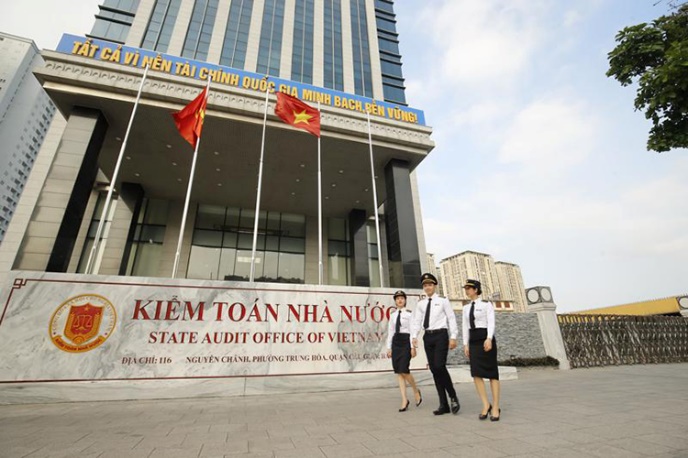Code of ethics is one of important elements affecting anti-corruption in public audit. Accordingly, Code of ethics - State Audit Standard No. 30 was signed and promulgated by the Auditor General in 2014. The Code of ethics is considered a basis for improvement of State Auditors’ consciousness and responsibility in observing the regulations on public service ethics associated with proffesional ethics.

Proffesional ethics of State Auditors - an important element to prevent corruption in public auditing activities
Improving professional ethics of State Auditors, minimizing inappropriate behaviors arising in the audit process
Auditors’ ethical behavior is one of the important conditions to ensure the SAV's reputation. Any violation of code of ethics or any inappropriate behavior in auditors’ personal life not only negatively affects the integrity, quality and effectiveness of the audit but also damages the reputation of the capability and reliability of the SAV. Therefore, recognition and adherence to auditors’ ethical regulations will increase the prestige and reliability of the SAV.
On the other hand, compliance with the principles of code of ethics will prevent auditors from risks during performing audit tasks including self-interest, familiarity, intimidation, self-review, advocacy, etc. which may lead to wrongdoings of auditors such as failing to reach full conclusion about the auditees’ shortcomings, deliberately concealing major misstatements and so on.
In order to improve professional ethics of auditors and deal with negative behaviors arising during the audit, the SAV has been in the process of improving policies and guidelines on audit standards and profession as well as applying; enhancing training activities, raising awareness of auditors; upholding the exemplary role of leaders, especially the head of units, the head of audit delegation, the head of audit teams in complying with the code of ethics.
In addition, the SAV has also strengthened its inspection activities to detect shortcomings in the operation of the units for relevant recommendations and enhanced anti-corruption assignment in audit activities. Audit quality control is also focused on mitigating risks in the audit process, contributing to improving audit quality and efficiency, promoting anti-corruption, etc.
Qualities, capability and professional ethics of State Auditors contribute to ensuring the effectiveness and efficiency of anti-corruption
In recent years, the SAV has done a good job of recruiting of civil servants who meet the units' and working position needs. A reasonable cadre structure, a young workforce with academic training, and qualified staff are the important solutions for the SAV to become an effective tool of the Party and State in proper management and usage of public resources and anti-corruption.
In order to achieve the objectives of auditor training plan, the SAV has promulgated short, medium and long-term training plans for civil servants and built a training framework for various ranks of auditors. In addition, the training programs have been timely and effectively implemented; political and ideological education for its civil servants and public employees have been promoted with regular propagation and education on culture, behavior and professional ethical standards of auditors, etc.
However, in order to have a competent staff meeting the SAV's requirements for anti-corruption, the training activities need to:
- Build a pool of state auditors with strong political will, competence and ethical qualities, a transparent and healthy lifestyle, a spirit of solidarity, a sense of organization and discipline, and responsibility at work.
- Focus on self-training in the form of "on-the-job training"; focus on training audit skills and experience; regularly update and disseminate new regulations and laws to auditors as well as strengthen activities of preliminary review, summarization and exchange of experience in auditing expertise at SAV specialized audit units and regional audit offices.
- Conduct classes on anti-corruption or integrate anti-corruption content into training programs
- Improve the content, format and methods of training for auditors in order to equip them with solid legal and professional knowledge; code of ethics and knowledge of anti-corruption to meet the requirements of practice.
- Research and organize knowledge-sharing conferences, scientific and professional seminars on anti-corruption activities, the coordination relationship among the SAV’s subordinate units as well as with external agencies.
- Research and study the experience of anti-corruption from other SAIs; create favorable conditions for the auditors to have study visits abroad on audit profession in general and anti-corruption in particular.
- Continue to research and reform the salary regime, reassure auditors of their dedication to work; strengthen facilities, equipment and electronic libraries, diversify funding sources for training activities.